Over the years, you may have considered various options for your fencing needs, and one of the most common choices is between vinyl and wood gates. Each material has distinct advantages and disadvantages that can significantly impact your decision. In this informative blog post, you’ll discover the key differences between vinyl and wood gates, helping you determine which option is best suited for your home, budget, and maintenance preferences.
Key Takeaways:
- Durability: Vinyl gates are generally more resistant to weather, termites, and decay compared to wood, leading to a longer lifespan.
- Maintenance: Vinyl gates require significantly less maintenance than wood, as they do not need painting, staining, or sealing.
- Cost-effectiveness: While the initial investment for vinyl may be higher, its longevity and low maintenance costs can make it more cost-effective over time.
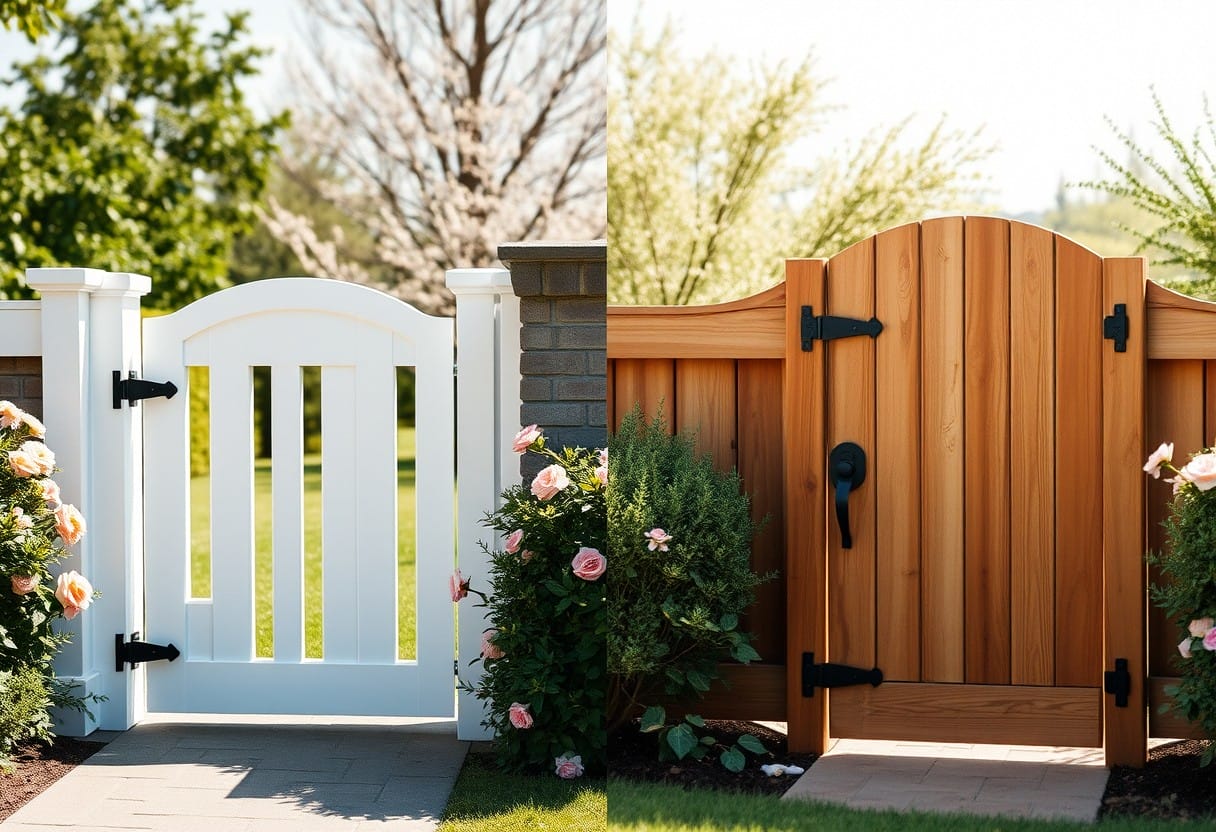
Overview of Vinyl Gates
To understand the advantages of vinyl gates over wood, it’s important to first grasp what vinyl gates are and their various characteristics. Vinyl gates are exterior barriers made from polyvinyl chloride (PVC) or other synthetic materials, which are designed to mimic the look and feel of traditional wood while offering numerous enhancements in durability and maintenance. Known for their resilience to harsh weather conditions, vinyl gates are often a preferred choice among homeowners looking for a long-lasting solution.
Definition of Vinyl Gates
Gates crafted from vinyl provide an attractive and functional entry point for your property. Unlike wooden gates that may warp, rot, or deteriorate over time due to moisture and other environmental factors, vinyl gates maintain their structural integrity, appearance, and functionality, often for decades. Their versatility allows them to be designed in various styles, colors, and sizes, seamlessly fitting into your landscape.
Common Uses of Vinyl Gates
An important aspect of vinyl gates is their extremely versatile nature. These gates are commonly utilized in residential settings for privacy fencing, pool enclosures, and garden entrances. They can also serve to enhance security around your property while presenting an aesthetically pleasing appearance. Commercial properties frequently opt for vinyl gates for their durability and low-maintenance attributes, enabling them to withstand frequent use without compromise.
Vinyl gates can also be adapted for use in different environments, ensuring that they provide a functional and attractive solution for any property type. Their resistance to fading, cracking, and peeling means that you won’t have to worry about repainting or refinishing them regularly, making them very cost-effective in the long run. Some common applications for vinyl gates include:
- Residential fencing
- Pool safety enclosures
- Garden access points
- Commercial property entrances
- Animal corrals or pens
Types of Vinyl Gates
Definition of the various types of vinyl gates enables you to understand the best options available for your needs. There are primarily two types of vinyl gates: the standard “privacy” gate, which offers a solid barrier for maximum seclusion, and the “picket” gate, which includes a more open design that allows visibility while still providing security. In addition, there are specialized gates designed for unique applications, such as for pool access or decorative purposes.
| Type of Gate | Description |
| Privacy Gate | Solid design for maximum privacy and security. |
| Picket Gate | Open design allowing visibility while providing security. |
| Pool Gates | Self-closing and self-latching gates for safety around pools. |
| Decorative Gates | Designed for aesthetic appeal with various styles. |
With numerous types of vinyl gates available, it’s crucial to choose the right one that meets your specific needs. For instance, if privacy is a top priority, a privacy gate will serve you better, while a decorative or picket gate may be ideal for enhancing curb appeal. Understanding the various types will ensure you make a well-informed decision that aligns with your preferences and requirements.
- Privacy or solid gates
- Picket or semi-privacy gates
- Pool safety gates
- Driveway gates
- Garden or decorative gates
Conclusion
Plus, as you explore your options, it’s imperative to recognize that vinyl gates not only offer functional benefits but also provide a stylish addition to your property. Whether you are looking for privacy, security, or simply an attractive feature to enhance your yard, understanding these aspects will guide you in selecting the ideal vinyl gate type for your project.
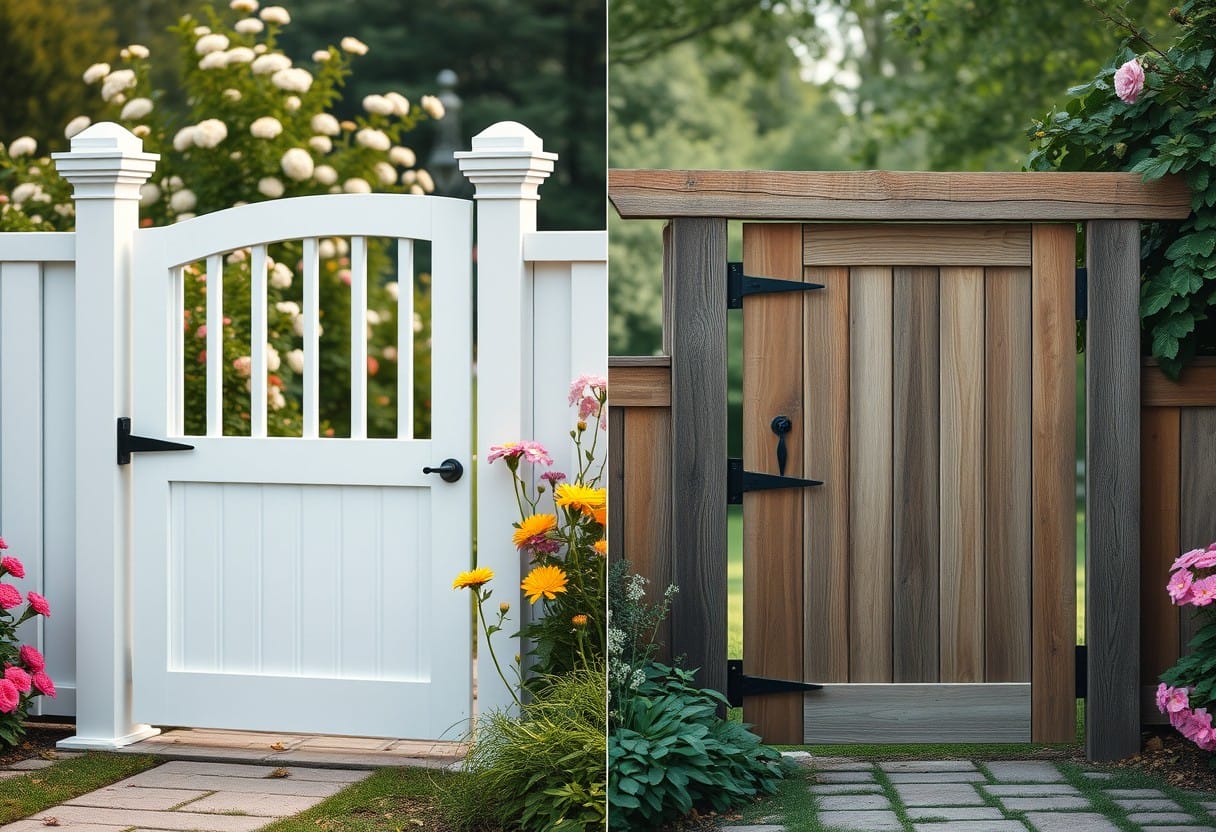
Overview of Wood Gates
There’s no denying that wood gates have been a popular choice for homeowners for many years. They offer a natural aesthetic that can enhance the overall look of your property while providing security and functionality. Understanding what wood gates are, their common uses, and the various types available can help you make an informed decision when considering your options.
Definition of Wood Gates
Overview, wood gates are primarily constructed from various types of timber, designed to serve as barriers or entry points to a property. These gates can be customized in terms of size, design, and finish, allowing you to match them with your home’s architectural style. Wood gates can vary in complexity, from simple designs to more intricate, decorative options that enhance your property’s curb appeal.
Common Uses of Wood Gates
Overview, wood gates are often used in residential settings, providing access to backyards, gardens, and patios. They can also act as secure entry points to driveways or as a boundary marker between different areas of your property. Additionally, wood gates are frequently used in combination with fencing to create a cohesive look while offering protection and privacy.
A wood gate can be multifunctional, serving not just as a barrier but also as an enhancement to your landscaping. You can see wood gates adorned with plants, lights, or other decorative items, making them an appealing feature that complements your outdoor space. Their warmth and natural look contribute to the overall ambiance of your property.
Types of Wood Gates
One of the great advantages of wood gates is the variety of styles and types available. Here are some popular types of wood gates:
| Type | Description |
|---|---|
| Panel Gates | These consist of flat panels that create a solid, secure barrier. |
| Split Rail Gates | Categorized by their horizontal rails, these are ideal for rustic looks. |
| Arched Gates | Featuring a curved top, these gates add a decorative touch. |
| Picket Gates | These have vertical slats that provide a classic, open look. |
| Double Gates | Comprising two doors, these are often used for driveways. |
Gates made from wood can also be tailored further according to your needs. You might choose a fully framed design for maximum stability or an ornamental style that reflects your personal taste. Additional features like automatic openers or locking mechanisms can enhance their practicality and security.
- Framed Gates
- Single Swing Gates
- Custom-Made Gates
- Decorative Gates
- High Security Gates
Recognizing the right type of wood gate for your home will not only help ensure functionality but also elevate the overall appeal of your outdoor space.
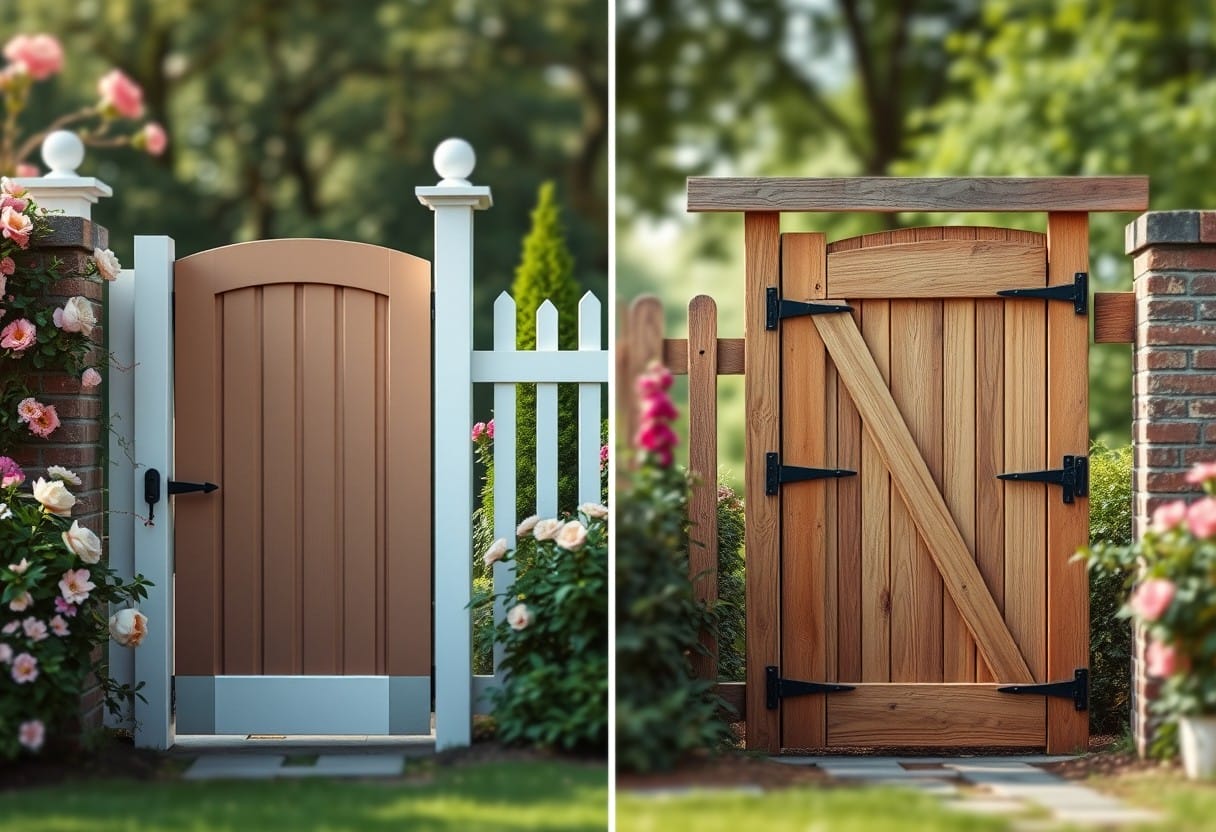
Advantages of Vinyl Gates
Not all gates are created equal, and when it comes to choosing between vinyl and wood, vinyl gates offer a variety of advantages that make them an appealing option for homeowners. For a detailed look at this comparison, check out <Vinyl vs. Wood Fence: Cost, Strength, Style Comparison>. These benefits come into play particularly in terms of durability, maintenance, aesthetic versatility, and resistance to common issues like pests and rot.
Durability and Longevity
Durability is one of the key advantages you’ll appreciate with vinyl gates, as they are designed to withstand harsh weather conditions far better than wood. Unlike wood, vinyl does not warp, crack, or splinter over time, which means your gate will maintain its structural integrity for years to come. This means fewer replacements and repairs, ultimately saving you money in the long run.
Furthermore, vinyl gates are UV resistant, ensuring that the colors don’t fade and that they remain vibrant, even after prolonged exposure to sunlight. Combining these features leads to an impressive lifespan, often exceeding that of wood gates, making vinyl a solid investment for your property.
Low Maintenance Requirements
Vinyl gates require very little maintenance compared to their wooden counterparts. Because they are non-porous and do not absorb moisture, you can rest easy knowing that you won’t have to worry about painting, staining, or sealing your gate periodically. A simple wash with soap and water is usually enough to keep your vinyl gate looking new.
For instance, many homeowners find that cleaning their vinyl gate once a year is more than sufficient, whereas wood gates can require seasonal upkeep to prevent damage from the elements. You avoid the hassle of ongoing maintenance and can spend more time enjoying your outdoor space.
Aesthetic Versatility
Any style you envision for your property can be achieved with vinyl gates. They come in various colors, designs, and finishes that can complement your home’s architecture and landscaping. You don’t have to compromise your aesthetic vision; vinyl gates can easily fit into any design scheme, whether modern, traditional, or somewhere in between.
Plus, the ability to easily customize vinyl gates with decorative elements means you have more options for expressing your personal style, something that wood may not be able to offer as effectively without the need for extensive modifications.
Resistance to Pests and Rot
With vinyl gates, you gain the benefit of being resistant to pests such as termites, which can wreak havoc on wooden structures. This makes vinyl a more reliable choice in areas prone to pest infestations. Additionally, vinyl does not rot, so you won’t have to deal with the deterioration that can occur with wood gates, especially in damp conditions.
Aesthetic considerations aside, choosing a vinyl gate means you can have peace of mind when it comes to longevity and durability. Knowing that your gate will stand strong against challenges such as pests and the elements allows you to enjoy your property without the fear of frequent replacements or repairs.
Advantages of Wood Gates
Once again, wood gates offer several advantages that make them a compelling option for your property. From their natural beauty to their customizable features, wood can provide both functionality and aesthetic appeal that meets your unique preferences.
Natural Aesthetic Appeal
Gates made from wood bring a warm and inviting presence to any entrance. The organic textures and rich tones of timber create a natural connection to your landscaping, enhancing the overall beauty of your home. Each gate is unique, showcasing its own grain patterns and knots, which adds character and charm that synthetic materials simply cannot replicate.
Moreover, wood gates can be designed to match various architectural styles, whether you prefer a rustic farmhouse vibe or a sleek, modern look. The versatility of wood allows it to blend seamlessly into your environment, enhancing your curb appeal and making a favorable impression on visitors and passersby.
Customization Options
Customization is one of the standout features of wood gates. You have the opportunity to choose from a variety of types of wood, styles, and finishes that suit your taste and needs. Whether you desire a classic picket gate, a more robust privacy gate, or something uniquely designed, the options are practically limitless, allowing you to express your personality through your gate choice.
Advantages of wood gates extend beyond mere appearance. You can easily alter dimensions, add decorative elements, or even incorporate different types of wood to create a gate that aligns with your vision. This level of personalization ensures that your gate is not only functional but also a true reflection of your style.
Environmental Benefits
Appeal to sustainability is another significant advantage of using wood gates. Since wood is a renewable resource, opting for treated lumber sourced from responsibly managed forests can significantly reduce your carbon footprint. By choosing wood, you are supporting sustainable practices that help preserve the environment for future generations.
Plus, wood gates tend to blend more harmoniously with nature compared to materials like vinyl or aluminum. They create a softer, more organic element in your landscape, contributing to a greener environment. As an added benefit, wood is biodegradable, meaning it will decompose naturally over time, unlike plastic alternatives that can persist in the environment for centuries.
Structural Integrity
An advantage of wood gates is their impressive structural integrity when properly maintained. Quality wood, such as cedar or redwood, offers strength and durability that can withstand various weather conditions and external impacts. With the right care, including regular sealing and treatment, wood gates can last for many years, proving to be a wise investment for your property.
Another important factor to consider is that wood gates can be reinforced easily, enabling you to enhance their resilience. Whether you want to increase security features or improve stability for high-traffic areas, wood can accommodate modifications without compromising its aesthetic appeal.
Disadvantages of Vinyl Gates
After considering the various benefits that vinyl gates offer, it’s imperative to also examine some of their disadvantages. While they may present as a more modern alternative, there are notable factors you should be aware of that could affect your decision-making process.
Initial Cost Considerations
Vinyl gates generally come with a higher upfront cost compared to their wooden counterparts. When you first look into purchasing a vinyl gate, you may find that the price is noticeably steeper. This initial investment can be a significant drawback if you are working within a tight budget, as it could strain your finances before you even factor in installation expenses.
While the long-term savings from reduced maintenance costs can offset this initial expenditure, you should determine whether the benefits justify the higher price tag based on your unique circumstances. It’s necessary to weigh the immediate costs against the potential future expenses before making your final decision.
Limited Color Choices
Any homeowner considering a vinyl gate should also note that options for colors are relatively limited. Most vinyl gates come in a set array of shades that may not cater to your specific aesthetic preferences or match your existing exterior decor. While you can find some options in neutral tones, you may find that the lack of vibrant color selections can leave your property feeling less distinct.
This limitation may affect your overall satisfaction with the installation. If having a gate that complements your landscape is a vital aspect for you, it could mean compromising on the aesthetics when opting for vinyl over wood. It is necessary to think about how well the available colors align with your property’s design vision.
Vulnerability to Extreme Temperatures
With all materials, you will need to understand how environmental conditions can impact their performance. Vinyl gates are particularly vulnerable to extreme temperatures. When subjected to excessive heat, vinyl can warp, leading to a potentially unsightly, asymmetrical appearance. Conversely, in extreme cold, it may become brittle, increasing the risk of cracks and breakage during installation or after periods of severe weather.
Vulnerability to Extreme Temperatures Impact
| High Temperatures | Can cause warping and deformity |
| Low Temperatures | Can result in brittleness and cracking |
Initial exposure to these temperature extremes can cause problems that are detrimental to the gate’s longevity. If your area experiences severe weather conditions, you may want to reconsider your choice of vinyl gates in favor of a more resilient material. Understanding your local climate and its potential impact on your gate can help you make a more informed decision.
Further Temperature Vulnerabilities
| Moisture and Humidity | Can also affect the gate’s integrity over time |
| UV Exposure | May lead to fading and discoloration |
Disadvantages of Wood Gates
Despite their charm and aesthetic appeal, wood gates come with several disadvantages that can impact your overall satisfaction and investment in your property. Understanding these drawbacks is imperative as you consider whether to choose a wood gate or explore alternatives like vinyl. By recognizing the issues that can arise with wood gates, you can make a more informed decision for your home and lifestyle.
Higher Maintenance Requirements
To ensure your wood gate remains functional and visually appealing, you must commit to regular maintenance. This includes periodic treatments with stains or sealants to protect the wood from moisture, sun exposure, and insect infiltration. Additionally, you might need to sand, repaint, or repair the gate to address wear and tear from daily use. All these tasks can become time-consuming and may require a financial investment in materials.
Susceptibility to Weather Damage
Requirements for maintaining a wood gate extend beyond simple upkeep; they also involve protecting the gate from the elements. Wood is inherently porous, which means it absorbs water when exposed to rain or humidity. This can lead to swelling, warping, or cracking, significantly reducing the lifespan of your gate. In colder climates, the freeze-thaw cycle can exacerbate these issues, leading to even more severe damage over time.
Weather conditions can further diminish the structural integrity of your wood gate. Prolonged exposure to harsh sunlight can cause fading and drying, while precipitation may lead to rot. Furthermore, high winds can impose stress on the gate, complicating the need for constant repairs or replacements. Therefore, you must remain vigilant about the impact of weather on your wood gate.
Potential for Pests and Decay
With the organic nature of wood, there’s an inherent risk of pest infestation. Wood gates can become a breeding ground for termites and other wood-destroying insects that can cause structural damage. Additionally, mold, mildew, and fungi can grow on untreated or inadequately maintained wood, compromising the durability of your gate. Moreover, you should remain alert and ready to address any signs of infestation or decay to prevent further damage.
Plus, pests are not the only concern; wood is also vulnerable to decay caused by moisture retention. If your gate does not have proper drainage or is built in an area with poor air circulation, it can succumb to rot over time. This decay can lead to costly repairs and even necessitate complete replacement, making it a substantial consideration in your decision-making process.
Final Words
Ultimately, when deciding between vinyl gates and wooden gates, you should consider your specific needs and preferences. Vinyl gates offer considerable advantages in terms of durability, maintenance, and longevity, making them an attractive option if you seek a long-term solution that requires minimal upkeep. On the other hand, wooden gates can provide a classic aesthetic that may complement certain architectural styles or landscapes. However, they require more maintenance and are more susceptible to damage from weather and pests, which can lead to additional costs over time.
Your choice ultimately hinges on factors such as your budget, desired aesthetic, and how much maintenance you are willing to undertake. If you want a gate that stands the test of time while remaining hassle-free, vinyl may be the better option for you. For a comprehensive comparison of both materials and their respective benefits, consider checking out this guide on Vinyl vs Wood Fence: What’s the Difference?. By weighing the pros and cons, you can make an informed decision that meets your needs now and in the future.
FAQ
Q: Are vinyl gates more durable than wood gates?
A: Yes, vinyl gates are generally more durable than wood gates. Vinyl does not splinter, warp, or rot like wood, making it a better option for areas with varying weather conditions. Vinyl gates are also resistant to insects like termites, which can compromise the integrity of wood gates over time.
Q: How do maintenance requirements compare between vinyl and wood gates?
A: Vinyl gates require significantly less maintenance than wood gates. While wood gates need regular painting, staining, or sealing to protect against the elements, vinyl gates are typically wash-and-go; they only require occasional cleaning with soap and water to maintain their appearance.
Q: Are vinyl gates more aesthetically pleasing than wood gates?
A: Aesthetics are subjective, but vinyl gates come in a variety of colors and styles that can mimic the appearance of wood without the upkeep. While some people prefer the natural look of wood, vinyl can offer a clean and modern look that remains consistent over time. Furthermore, vinyl does not fade or lose its color as quickly as wood can when exposed to sunlight.
Q: What is the cost comparison between vinyl and wood gates?
A: Initially, vinyl gates may have a higher upfront cost compared to wood gates. However, considering their longevity and lower maintenance expenses, vinyl gates can be more cost-effective in the long run. It’s necessary to factor in the full lifecycle cost when making a decision, as vinyl can last for decades without much investment, whereas wood may need replacement or significant repairs sooner.
Q: Are there any environmental considerations when choosing between vinyl and wood gates?
A: Yes, there are environmental considerations for both materials. Wood gates are biodegradable and can be sourced from sustainable forests, which makes them a greener option if sourced responsibly. However, vinyl is made from PVC, which can have environmental drawbacks during the production process and does not decompose like wood. It’s important to consider your local resources and sustainability practices when choosing the appropriate gate for your needs.
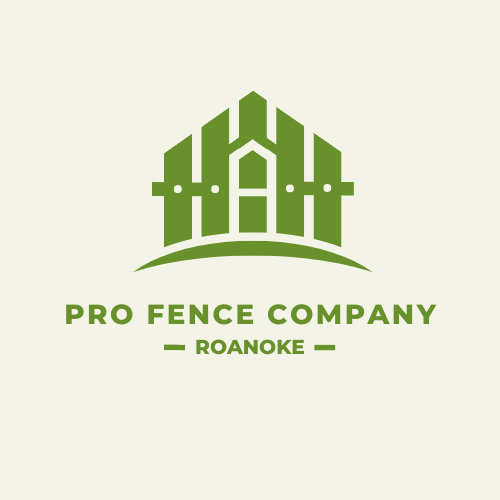
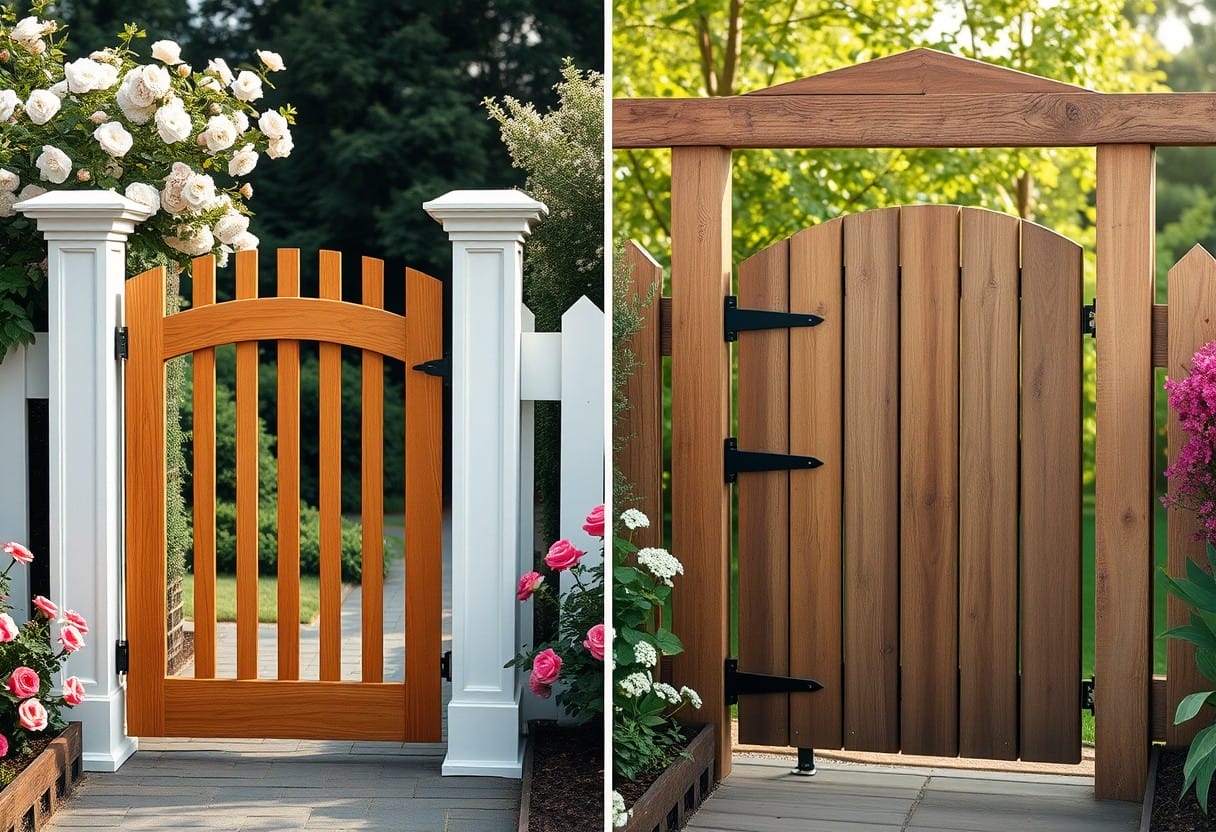
Leave a Reply